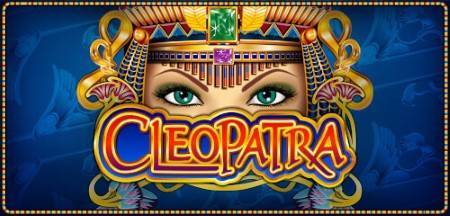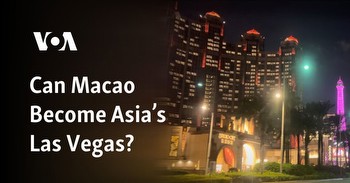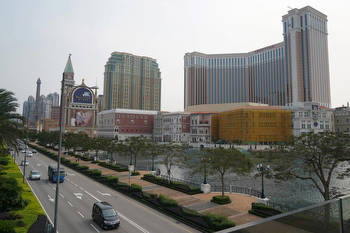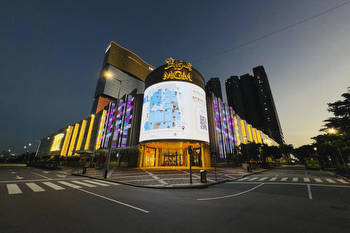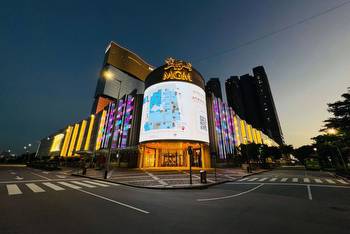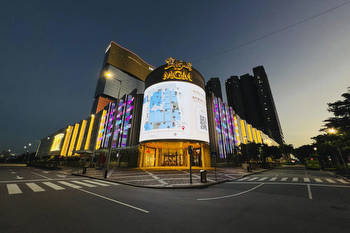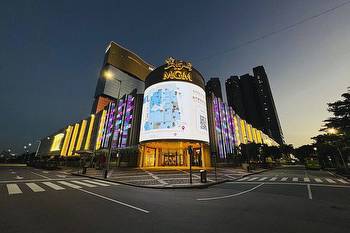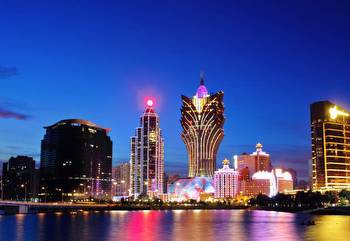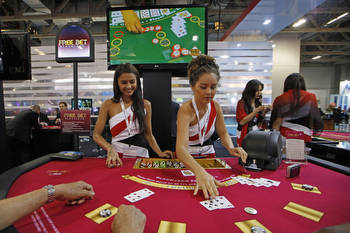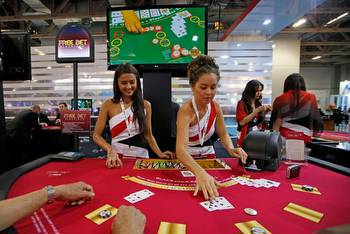Can Macao move beyond gambling to entertainment and retail?
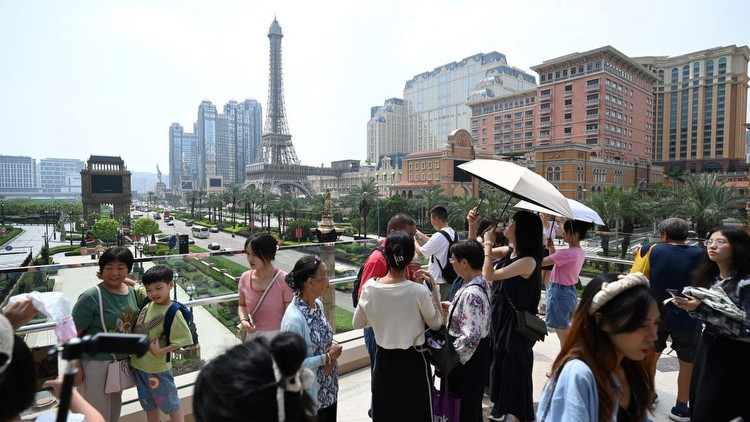
This story was produced by our colleagues at the BBC.
China wants to transform Macao, known as the “Las Vegas of the East,” into a real Vegas that relies more on entertainment and tourism and less on gambling for its revenues.
The former Portuguese colony returned to Chinese sovereignty 25 years ago and is still the only place in China where gambling is legal.
Inside a casino at one of Macao’s big gambling resorts, the Venetian, the gaming tables are full with customers. Many are playing baccarat, the most popular table game.
But larger crowds are gathered in the resort’s non-gaming areas, enjoying free entertainment as they watch a magician suspend an audience member in midair. One of the people in the crowd is Wendy Qiao, a tourist from mainland China, who has no interest in gambling.
“There are a lot of things here that I can’t see in Shenzhen, where I come from. I came here to also eat some Macao specialty food, such as Portugese tarts, pork jerky,” she said.
Qiao is the kind of tourist Beijing desperately wants Macao to attract. Its casinos no longer provide just slot machines and game tables, and have built waterparks, a virtual reality martial arts play area and a zip line. But the vast majority of money still comes from mainland Chinese gamblers.
Ben Lee is from iGamiX, a Macao-based gaming consultancy. “With the handover, the idea was that Hong Kong would become the financial capital of this region and Macao would become the entertainment center,” he said.
“20 years down the track, Macao has become a gambling center for Chinese gamblers mainly, which I don’t think was the intention of Beijing when it allowed Macao to liberalize its gaming industry.”
Macao’s gaming revenue was more than three times that of Las Vegas before the pandemic, but iGamiX research shows it earns just 5% of its revenue from non-gaming — compared to Las Vegas’ 70%.
Casino operators have struggled to draw non-gambler tourists by simply opening retail stores or holding concerts, as the culture is very different.
“A typical American would go to Vegas, he would spend $200, $300 on a concert ticket, the same amount in alcohol, and maybe $20, $50 on a table and say they had a great night,” Lee said.
“The typical Asian — or more importantly the mainland Chinese — would come to Macao, they would maybe spend $20 on a meal, and invest the remaining $480 at the table. And for them that’s not entertainment, that’s a business venture from which they hope to get a return.”
Beijing has tried to wean Macao off its dependence on Chinese gamblers, who bring in around $150 billion. It restricts the number of visits Chinese residents can make and bans Macao’s casinos from advertising in mainland China.
Last year, the new 10-year concession contracts between Macao’s government and its six casino operators came into force. They require the casinos to invest heavily — nearly $14 billion in total — in non-gaming events such as conventions and exhibitions, waterparks, concerts and even revitalizing old districts.
That’s good news for Honey Leung, a manager at Pousada de Coloane, an elegant Portuguese style colonial-era manor house turned into a beach hotel and restaurant. She wants to promote Macao’s unique cultural heritage.
“We were once colonized by Portugal, so we have Western characteristics and we also have traditional Chinese characteristics,” she said. “If we develop different aspects of Macao’s tourism, we can attract tourists with different interests, not just people who come for gambling or shopping.”
Gaming industry expert Ben Lee says in order to do that, the government will have to resolve labor shortages and transportation issues, as well as bring in more English-speaking service staff.
“All our services here, from the concierge to room service, what do they speak to you? Mandarin,” he said. “So for a typical Southeast Asian-Chinese tourist from Malaysia who may not know Chinese or Mandarin or speak only their local dialect, they can’t get around.”
He said it will also mean casinos will have to put up with making less profit and doing more work by focusing more on non-gaming entertainment.
There’s a lot happening in the world. Through it all, Marketplace is here for you.
You rely on Marketplace to break down the world’s events and tell you how it affects you in a fact-based, approachable way. We rely on your financial support to keep making that possible.
Your donation today powers the independent journalism that you rely on. For just $5/month, you can help sustain Marketplace so we can keep reporting on the things that matter to you.







